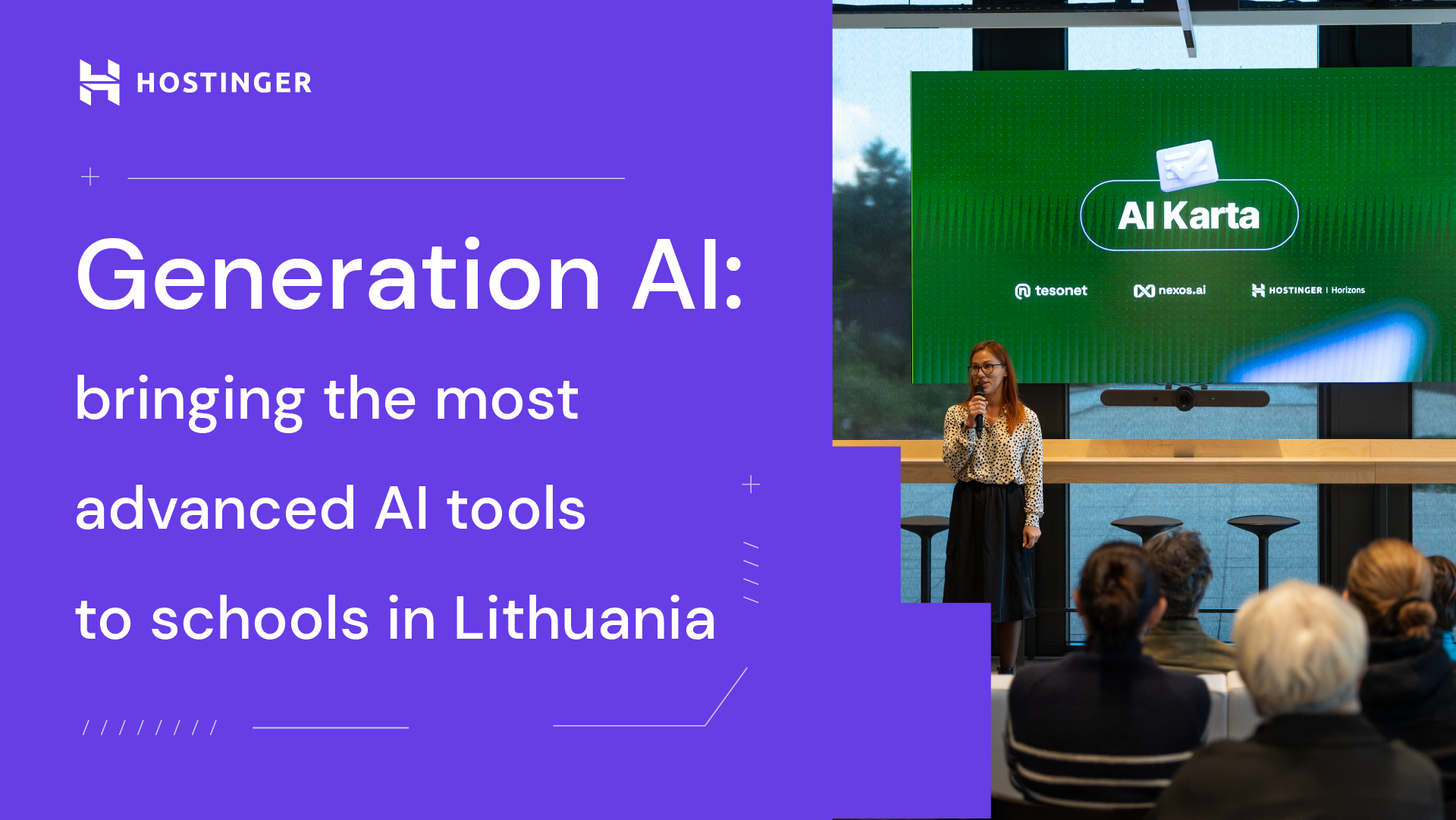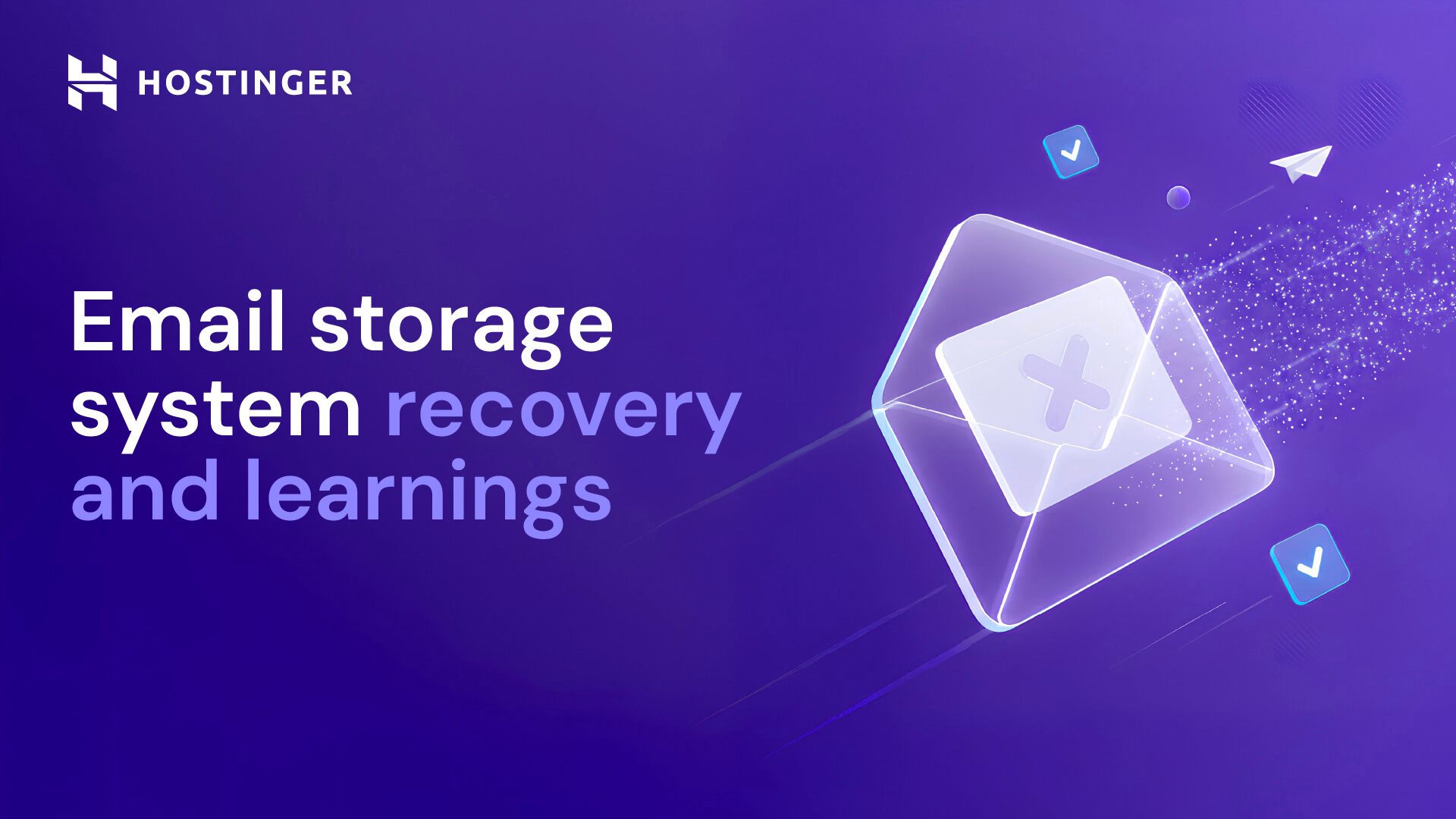This May, together with Tesonet, a startup accelerator, we launched a nationwide initiative offering schools in Lithuania free access to the most advanced AI tools, nexos.ai and Hostinger Horizons. The goal behind the initiative is to bring both teachers and students in the 9th-12th grades up to speed with the latest developments in AI, ensuring Lithuanian competitiveness on the global stage.
As of October 7, over 250 schools — representing more than 40,000 students and 500 teachers — have registered to participate.
Registered schools have already gained access to Hostinger Horizons, an AI-powered website creation tool, and nexos.ai, an orchestration platform integrating the latest AI models. The first dedicated onboarding events took place from October 7–9 in Vilnius and Kaunas, where teachers were trained to effectively integrate these tools into the classroom.
Due to high interest and active engagement from schools, and to achieve a bigger impact, registration for the initiative will remain open throughout the academic year for all Lithuanian teachers and schools.
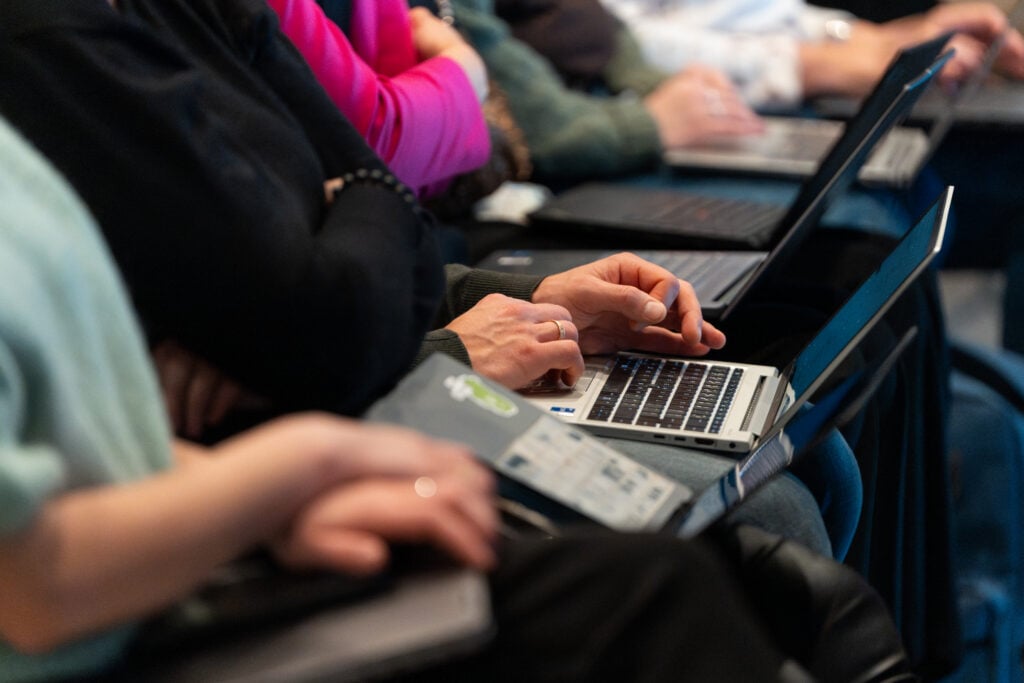
Dainius Kavoliūnas, Head of Hostinger Horizons product, says that the goal is to help students see technology not as something distant, but as a tool they can use.
“Vibe coding is changing how young people learn and create. Instead of focusing only on coding skills, students can now describe what they want to build in plain language — and see it come to life with AI. It gives them a sense of control and creativity that used to be reserved for experienced developers.
This approach helps students move from being users of technology to becoming its creators. It opens new ways of thinking, experimenting, and solving problems. By giving access to these tools early on, we hope to encourage curiosity and show that creating with technology can be simple, fun, and within everyone’s reach.”
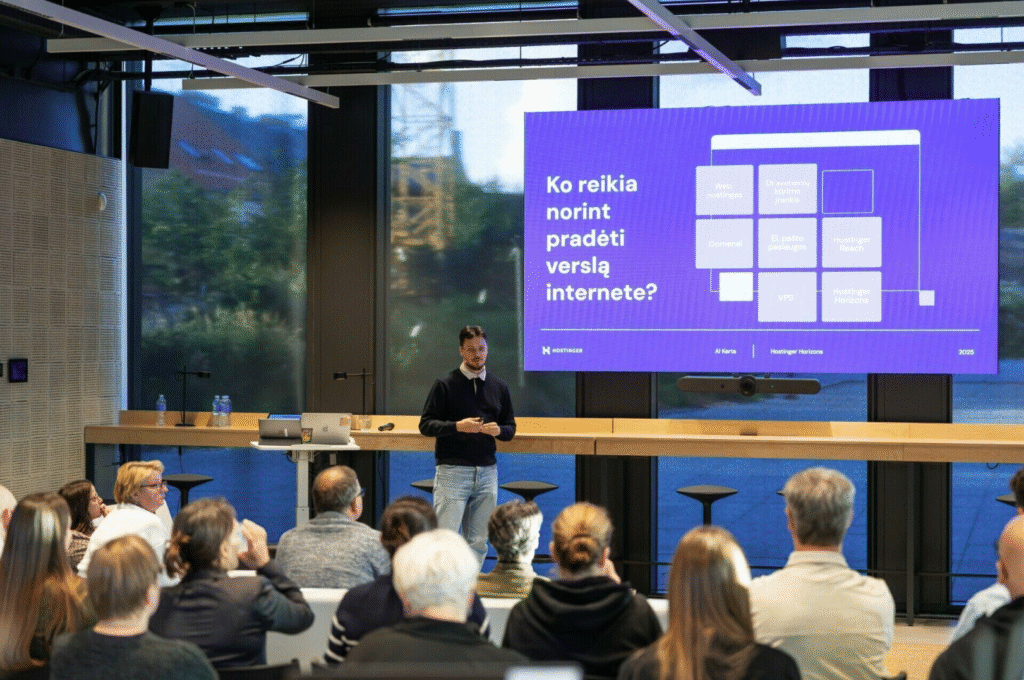
Simona Laiconaitė, Director of the progressive initiatives fund Tesonet Foundation, emphasizes that educational change does not happen automatically — it is driven by schools, their managers’ leadership, and decision-making. “Current numbers indicate that approximately one in three students in grades 9–12 will take part in the project. Technology is evolving at an unprecedented pace, and the ability to keep up, understand its potential, and leverage it is essential for individuals, companies, and the country to remain competitive and foster creativity. That is why registration will remain open all year, giving new schools access to the initiative.”
By providing access to Lithuania’s most advanced AI tools, the initiative enables students to experiment and create their first digital business ideas, encouraging entrepreneurship and future founders. At the same time, it supports teachers by enhancing the quality of education and fostering a more engaging, creative learning environment. “Focus groups with teachers conducted over the summer confirmed that AI can act as an assistant — helping create more creative projects and tasks supporting students’ emotional readiness in class, and significantly reducing administrative workload,” S. Laiconaitė added.
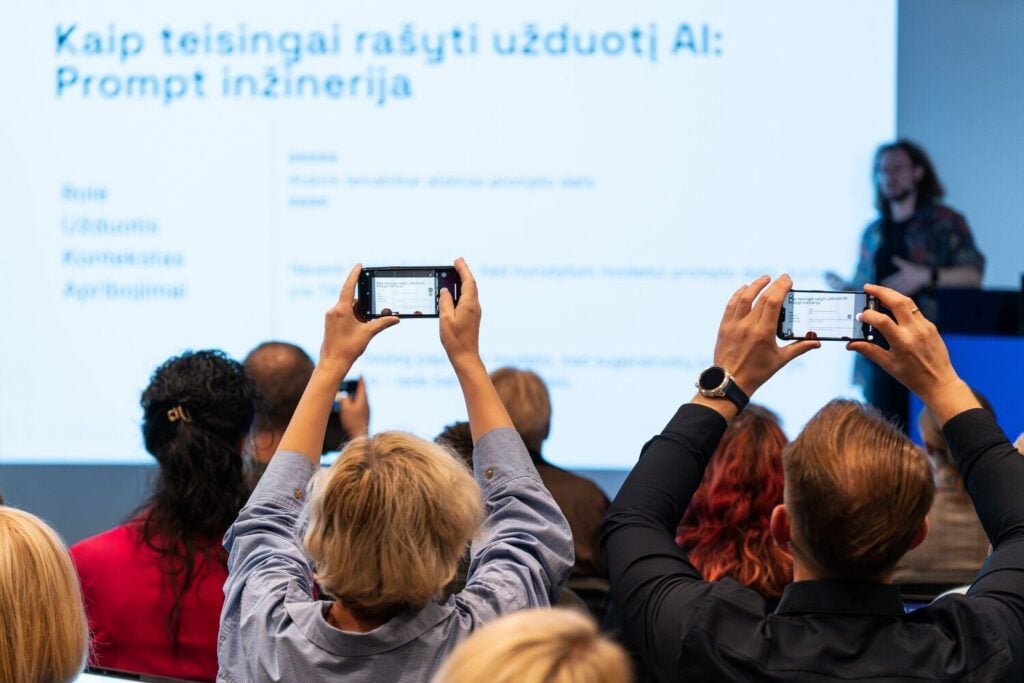
“The success of this project depends primarily on the engagement of schools and teachers. Students are already using AI, but it is crucial to integrate it meaningfully into the learning process. Not all students have access to these technologies, so ensuring equal opportunity is also vital. Generation AI promotes using AI for education and entrepreneurship, not just leisure,” said Simona.
Laura Masiliauskaitė, Director of the organization Švietimas #1 adds, “In the future, countries with education systems that constantly look ahead and adapt to the skills children need when leaving school will succeed. Estonia, widely recognized for its high-performing education system, is implementing AI nationwide this fall. For Lithuania to remain competitive, it is essential that school leaders and teachers take the lead, and that external initiatives provide not only technological tools but also guidance on how to use them to improve learning outcomes. Research shows that even a 1% improvement in education quality can contribute between 0.4% and 2.8% annual economic growth for the country.”
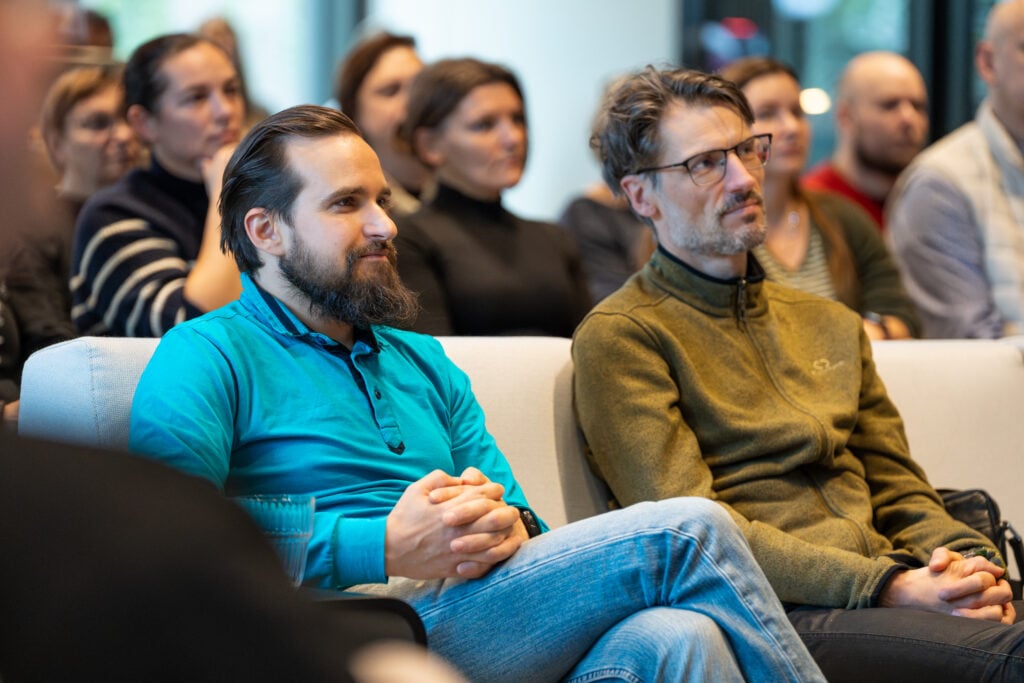
The long-term vision of the Generation AI initiative is to raise the standard of education in Lithuania by integrating AI into the learning process, promoting more effective and individualized learning, and reducing technological inequality.
More about the program: https://tesonet.ai/ai-generation

The post Nationwide initiative “Generation AI” launched: 40,000 students and their teachers started using the most advanced AI tools appeared first on Hostinger Blog.


